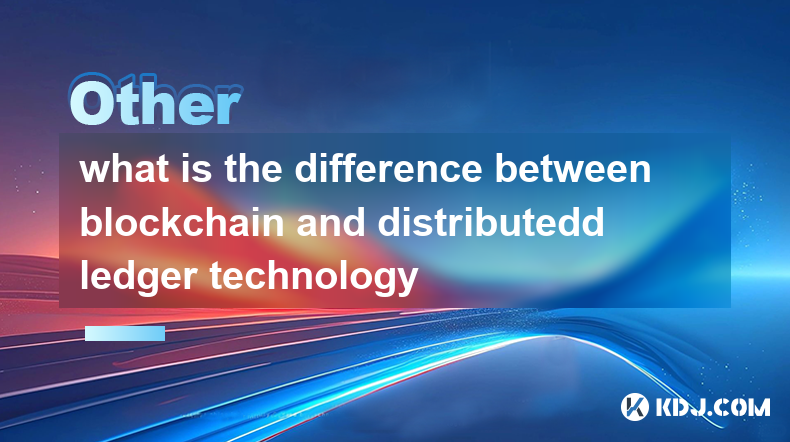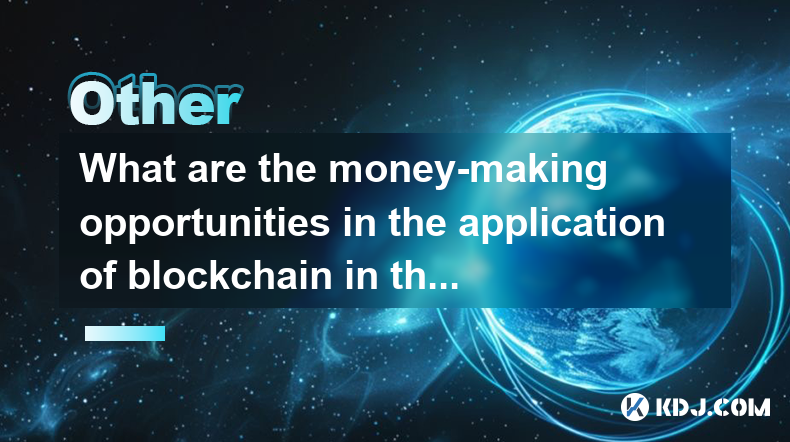-
 Bitcoin
Bitcoin $83,321.4268
1.92% -
 Ethereum
Ethereum $1,805.0367
1.69% -
 Tether USDt
Tether USDt $0.9993
-0.05% -
 XRP
XRP $2.1395
7.26% -
 BNB
BNB $594.8880
1.85% -
 Solana
Solana $119.4789
4.69% -
 USDC
USDC $0.9997
-0.04% -
 Dogecoin
Dogecoin $0.1698
7.63% -
 Cardano
Cardano $0.6677
6.83% -
 TRON
TRON $0.2403
2.57% -
 UNUS SED LEO
UNUS SED LEO $9.3931
-0.01% -
 Toncoin
Toncoin $3.4098
-4.38% -
 Chainlink
Chainlink $12.8159
2.86% -
 Stellar
Stellar $0.2605
3.26% -
 Avalanche
Avalanche $18.2959
1.70% -
 Sui
Sui $2.2472
0.47% -
 Shiba Inu
Shiba Inu $0.0...01231
1.39% -
 Hedera
Hedera $0.1660
6.00% -
 Polkadot
Polkadot $4.0976
4.31% -
 Litecoin
Litecoin $83.9330
2.88% -
 MANTRA
MANTRA $6.3850
1.06% -
 Bitcoin Cash
Bitcoin Cash $300.7858
1.83% -
 Bitget Token
Bitget Token $4.5326
1.30% -
 Dai
Dai $0.9998
-0.02% -
 Ethena USDe
Ethena USDe $0.9993
-0.03% -
 Monero
Monero $214.8497
2.22% -
 Hyperliquid
Hyperliquid $11.5517
2.18% -
 Uniswap
Uniswap $5.8645
2.37% -
 Pi
Pi $0.5305
-4.75% -
 NEAR Protocol
NEAR Protocol $2.5052
4.19%
what is the difference between blockchain and distributedd ledger technology
Blockchain, a specific type of Distributed Ledger Technology (DLT), offers immutability and transparency, unlike some other DLTs which may use different data structures and consensus mechanisms. Understanding these differences is crucial for navigating the diverse landscape of crypto technologies.
Mar 25, 2025 at 02:56 pm

Key Points:
- Blockchain is a specific type of Distributed Ledger Technology (DLT).
- DLT encompasses a broader range of technologies, including blockchain.
- Key differences lie in data structure, consensus mechanisms, and permissioning models.
- Blockchain's immutability and transparency are defining features not always present in all DLTs.
- Understanding these differences is crucial for navigating the diverse landscape of cryptocurrencies and related technologies.
What is the difference between Blockchain and Distributed Ledger Technology?
The terms "blockchain" and "distributed ledger technology" (DLT) are often used interchangeably, leading to confusion. However, they represent distinct concepts with a crucial parent-child relationship. DLT is the overarching umbrella term, while blockchain is a specific implementation of DLT. Think of it like squares and rectangles: all squares are rectangles, but not all rectangles are squares.
Distributed Ledger Technology (DLT) refers to a database replicated and shared across multiple participants in a network. This distributed nature enhances security and transparency, as no single entity controls the entire ledger. Various consensus mechanisms ensure data integrity and prevent fraudulent activities. Different DLTs employ diverse data structures and access control mechanisms.
Blockchain, on the other hand, is a specific type of DLT characterized by its unique data structure – a chain of blocks. Each block contains a timestamp, transaction data, and a cryptographic hash linking it to the previous block. This chaining creates an immutable record of transactions, making it highly secure and tamper-proof. The cryptographic hashing ensures that any alteration to a block would be immediately detectable.
One key differentiator lies in the data structure. While blockchain utilizes a chain of blocks, other DLTs may employ different structures, such as directed acyclic graphs (DAGs) used in some cryptocurrencies. These alternative structures can offer advantages in terms of scalability and transaction throughput, but they may lack the same level of immutability as a blockchain.
Another critical difference lies in the consensus mechanisms used to validate and add new blocks to the ledger. Blockchain commonly utilizes Proof-of-Work (PoW) or Proof-of-Stake (PoS) algorithms, which require computational power or stake in the network to validate transactions. Other DLTs might employ different consensus mechanisms, like Byzantine Fault Tolerance (BFT) or Practical Byzantine Fault Tolerance (PBFT), tailored to specific network requirements and security needs. The choice of consensus mechanism significantly impacts the speed, security, and energy efficiency of the system.
Permissioning is another significant aspect distinguishing different DLT implementations. Public blockchains, like Bitcoin and Ethereum, are permissionless, meaning anyone can participate in the network and view the ledger. Private or permissioned DLTs, on the other hand, restrict access to a select group of participants, often requiring authorization to join the network and view transactions. This control over access offers enhanced privacy and security in specific applications, but it compromises the decentralization aspect inherent in public blockchains.
The immutability of blockchain is a significant point of difference. Once a transaction is recorded on a blockchain, it is extremely difficult, if not impossible, to alter or delete it. This characteristic is essential for building trust and transparency. However, not all DLTs offer this level of immutability. Some DLTs might allow for modifications or deletions under specific circumstances, depending on their governance structure and access controls. This flexibility can be advantageous in certain scenarios, but it comes at the cost of reduced immutability.
The transparency of blockchain is another defining feature. All transactions on a public blockchain are visible to everyone on the network. This transparency fosters accountability and trust. However, the level of transparency can vary significantly across different DLTs. Permissioned DLTs, for example, may restrict access to the ledger, limiting transparency to authorized participants only. The level of transparency desired will depend on the specific application and its requirements for privacy and security.
Frequently Asked Questions:
Q: Can all DLTs be considered blockchains?
A: No. Blockchain is a type of DLT. DLT is a broader category encompassing various technologies, including blockchain.
Q: What are the advantages of blockchain over other DLTs?
A: Blockchain's key advantages include its immutability, transparency, and decentralized nature, leading to enhanced security and trust. However, other DLTs may offer superior scalability or specific features depending on their design and application.
Q: What are some examples of DLTs that are not blockchains?
A: Hashgraph and some distributed database systems are examples of DLTs that utilize different data structures and consensus mechanisms than blockchain.
Q: Which is better, blockchain or other DLTs?
A: There's no single "better" option. The optimal choice depends entirely on the specific application's requirements. Factors like scalability, security, privacy, and transaction speed influence the decision.
Q: How does the immutability of a blockchain impact its use in cryptocurrencies?
A: The immutability ensures that cryptocurrency transactions are permanent and cannot be easily reversed or altered, enhancing the security and integrity of the system.
Q: Can a DLT be used without cryptocurrency?
A: Absolutely. DLT has applications beyond cryptocurrency, including supply chain management, voting systems, and healthcare record keeping. Cryptocurrency is just one application of DLT.
Disclaimer:info@kdj.com
The information provided is not trading advice. kdj.com does not assume any responsibility for any investments made based on the information provided in this article. Cryptocurrencies are highly volatile and it is highly recommended that you invest with caution after thorough research!
If you believe that the content used on this website infringes your copyright, please contact us immediately (info@kdj.com) and we will delete it promptly.
- Bitlayer Bitcoin Lending: Understanding the Benefits
- 2025-04-04 23:00:12
- Bitcoin (BTC) Might Still Be in an Acceleration Phase, and at the end of this phase experience “a sharp and dramatic rally”
- 2025-04-04 23:00:12
- Solana (SOL) and Binance Coin (BNB) Market Trends and the Rising Star Coldware (COLD)
- 2025-04-04 22:55:12
- Rep. Keith Ammon Is Trying to Make New Hampshire the First State to Invest in Bitcoin
- 2025-04-04 22:55:12
- PsyFi’s Closure Could Upset the Solana Ecosystem
- 2025-04-04 22:50:11
- As of April 1, 2025, Ethereum (ETH) Finds Itself at a Crossroads
- 2025-04-04 22:50:11
Related knowledge

Is the ranking of Chinese blockchain apps real and reliable?
Apr 04,2025 at 09:01pm
The ranking of Chinese blockchain apps has become a topic of interest for many in the cryptocurrency community, as it provides insights into the popularity and adoption of blockchain technology within China. However, the reliability and authenticity of these rankings are often questioned. This article aims to delve into the factors that influence these ...

What are the future development trends of blockchain game development?
Apr 03,2025 at 05:00am
Blockchain technology has revolutionized various industries, and gaming is no exception. As we look to the future, several trends are set to shape the development of blockchain games. These trends not only promise to enhance the gaming experience but also to integrate blockchain technology more seamlessly into the gaming ecosystem. Let's explore these t...

What are the maintenance costs of blockchain system development?
Apr 03,2025 at 06:07pm
The maintenance costs of blockchain system development are multifaceted and depend on various factors. These costs can include technical maintenance, security updates, infrastructure expenses, and personnel costs. Understanding these elements is crucial for anyone planning to develop or maintain a blockchain system. Technical MaintenanceTechnical mainte...

What are the money-making models of blockchain games?
Apr 04,2025 at 02:00pm
Blockchain games have emerged as a revolutionary way for players to earn real money while enjoying their favorite pastime. These games leverage the power of blockchain technology to create unique money-making models that benefit both the players and the developers. In this article, we will explore the various money-making models of blockchain games and ...

What are the money-making opportunities in the application of blockchain in the medical industry?
Apr 03,2025 at 03:35am
The integration of blockchain technology into the medical industry presents a myriad of money-making opportunities that can revolutionize healthcare systems. Blockchain's inherent characteristics, such as transparency, security, and immutability, make it an ideal solution for various medical applications. By leveraging blockchain, companies can develop ...

What are the money-making opportunities when blockchain and artificial intelligence are combined?
Apr 04,2025 at 01:28am
The convergence of blockchain and artificial intelligence (AI) presents a myriad of money-making opportunities within the cryptocurrency circle. This fusion leverages the decentralized and secure nature of blockchain with the analytical prowess of AI, creating innovative solutions and platforms that can generate significant revenue. From enhancing tradi...

Is the ranking of Chinese blockchain apps real and reliable?
Apr 04,2025 at 09:01pm
The ranking of Chinese blockchain apps has become a topic of interest for many in the cryptocurrency community, as it provides insights into the popularity and adoption of blockchain technology within China. However, the reliability and authenticity of these rankings are often questioned. This article aims to delve into the factors that influence these ...

What are the future development trends of blockchain game development?
Apr 03,2025 at 05:00am
Blockchain technology has revolutionized various industries, and gaming is no exception. As we look to the future, several trends are set to shape the development of blockchain games. These trends not only promise to enhance the gaming experience but also to integrate blockchain technology more seamlessly into the gaming ecosystem. Let's explore these t...

What are the maintenance costs of blockchain system development?
Apr 03,2025 at 06:07pm
The maintenance costs of blockchain system development are multifaceted and depend on various factors. These costs can include technical maintenance, security updates, infrastructure expenses, and personnel costs. Understanding these elements is crucial for anyone planning to develop or maintain a blockchain system. Technical MaintenanceTechnical mainte...

What are the money-making models of blockchain games?
Apr 04,2025 at 02:00pm
Blockchain games have emerged as a revolutionary way for players to earn real money while enjoying their favorite pastime. These games leverage the power of blockchain technology to create unique money-making models that benefit both the players and the developers. In this article, we will explore the various money-making models of blockchain games and ...

What are the money-making opportunities in the application of blockchain in the medical industry?
Apr 03,2025 at 03:35am
The integration of blockchain technology into the medical industry presents a myriad of money-making opportunities that can revolutionize healthcare systems. Blockchain's inherent characteristics, such as transparency, security, and immutability, make it an ideal solution for various medical applications. By leveraging blockchain, companies can develop ...

What are the money-making opportunities when blockchain and artificial intelligence are combined?
Apr 04,2025 at 01:28am
The convergence of blockchain and artificial intelligence (AI) presents a myriad of money-making opportunities within the cryptocurrency circle. This fusion leverages the decentralized and secure nature of blockchain with the analytical prowess of AI, creating innovative solutions and platforms that can generate significant revenue. From enhancing tradi...
See all articles




















































































